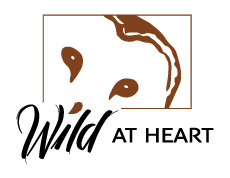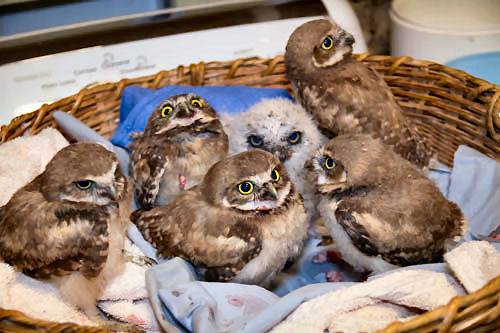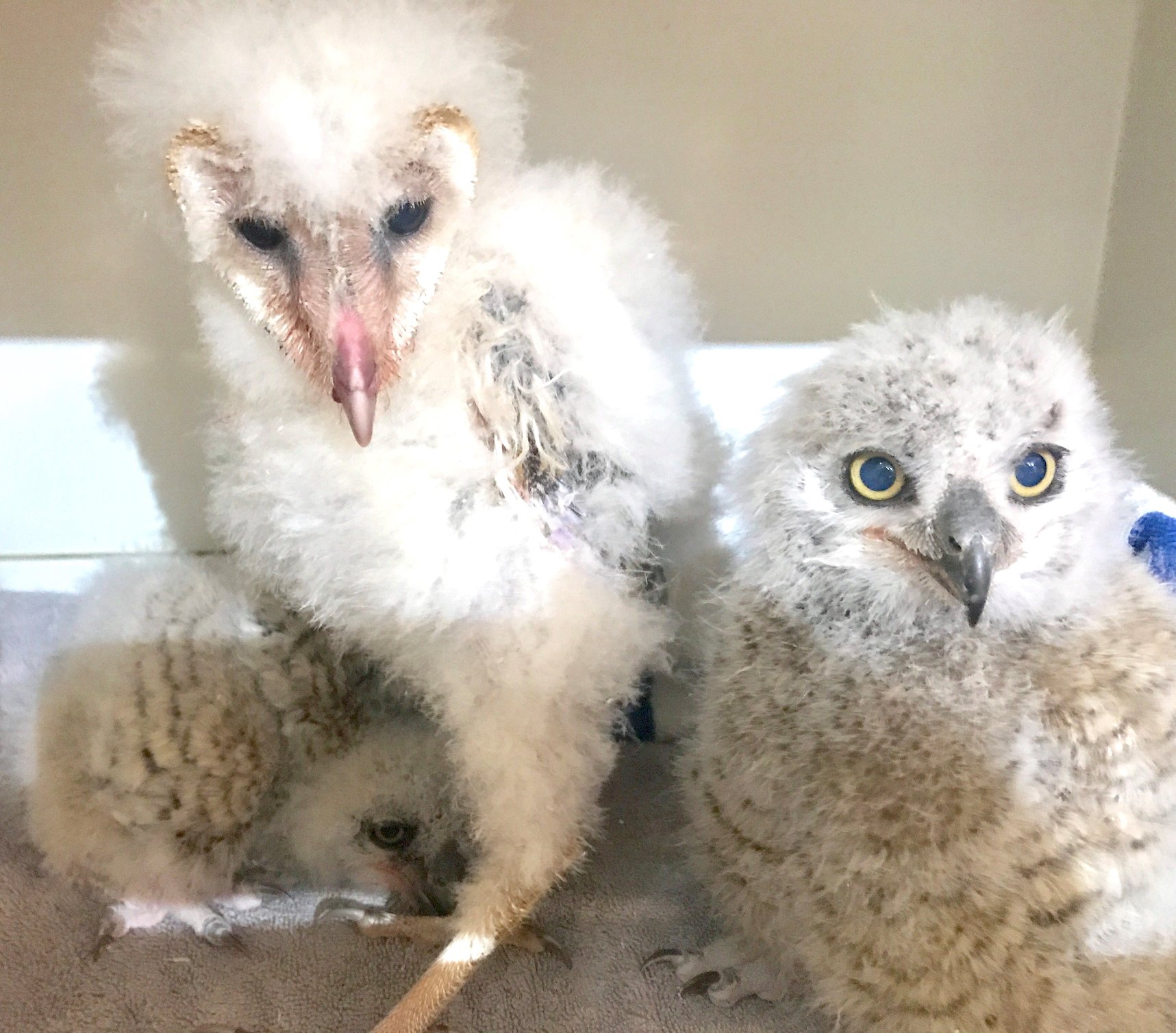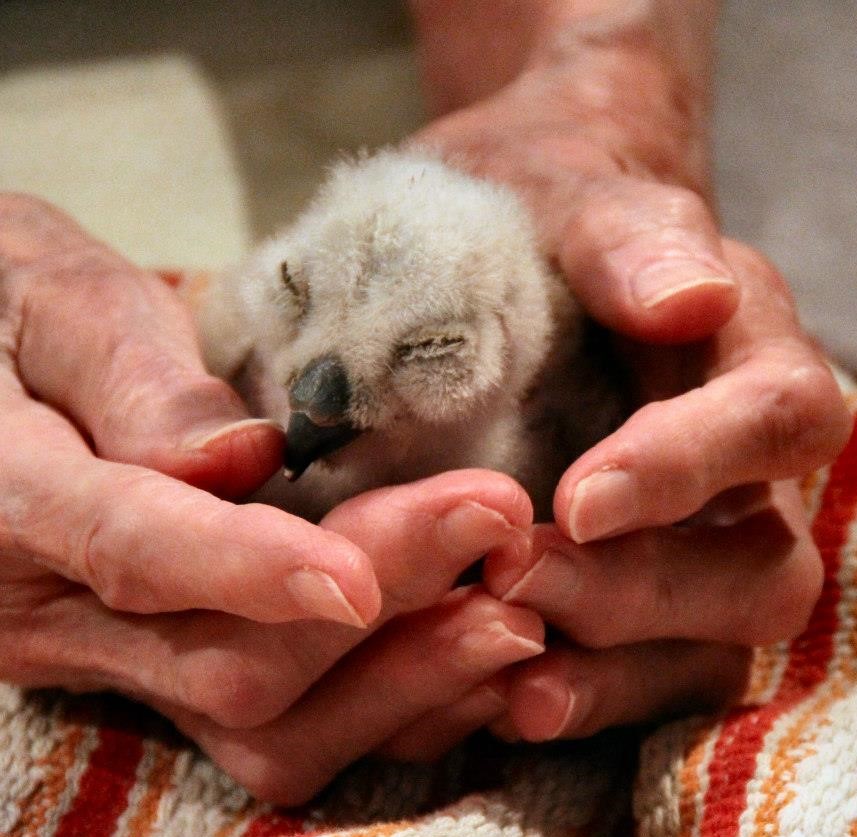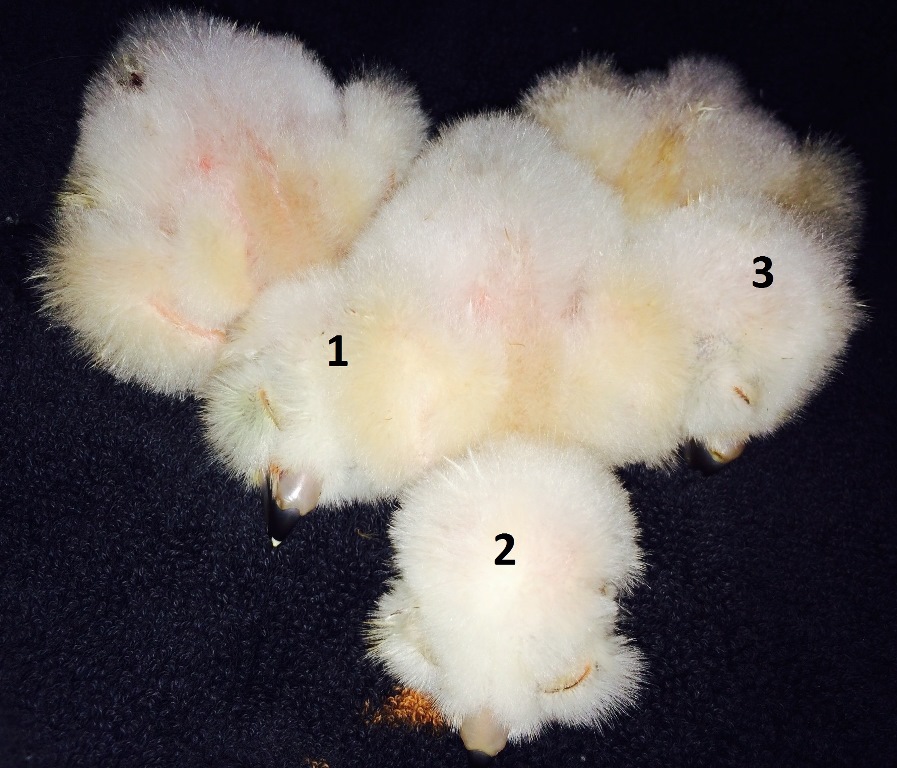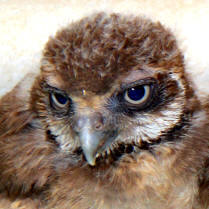Foster Parenting Program
Wild babies are better off with their families, but when orphaned and displaced nestlings are found and can not be returned to their nests, the next best thing is “wild fostering,” a technique in which orphans are placed in a wild family of their own species although not related.
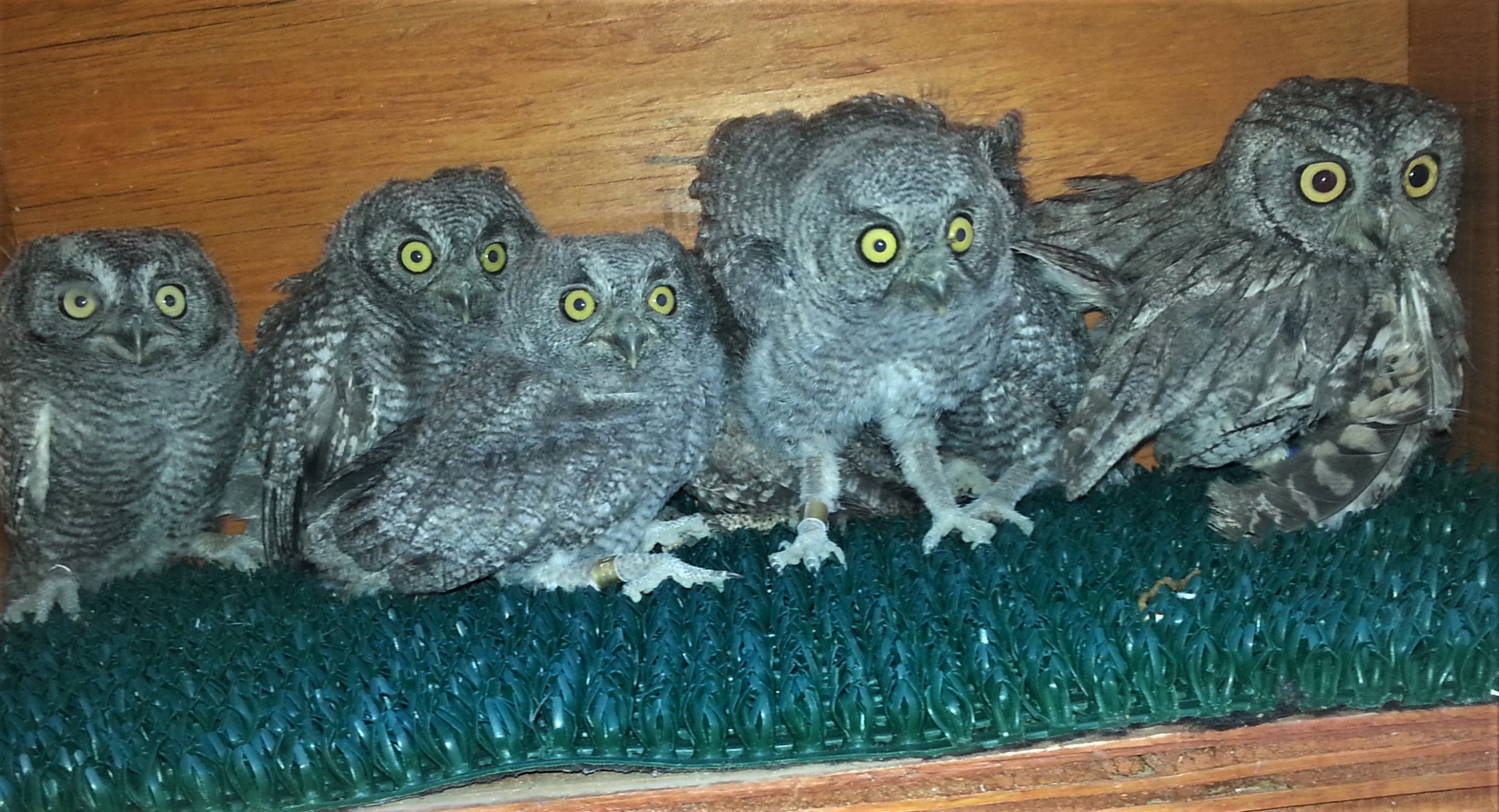
Letting Nature Take Care of Its Own
At Wild At Heart, we use our permanent resident raptors, non-releasable due to permanent injuries, as foster parents. Our raptor foster parents raise the orphans as their own and teach them how to fear humans, communicate, and hunt. If we do not have a suitable foster parent available, we use masks and other methods to prevent imprinting on humans.
Imprinting refers to a critical period early in an animal’s life when it forms attachments and develops a concept of its own identity. For example, birds are born with a pre-programmed drive to imprint their mothers. Imprinting provides animals with information about who they are and determines who they will find attractive when they reach adulthood. Unfortunately, if a wild bird is imprinted on a human, it cannot be released into the wild due to its lack of proper survival skills.
Young orphan birds that adult foster birds feed imprint onto their own species instead of humans. This prevents baby birds from becoming familiar with humans, which helps them stay away from people when released back into the wild when they are mature enough.
In 1990 Sam and Bob Fox, Co-Founder of WAH, established the first raptor foster parenting program in Arizona, with a non-releasable Barn Owl named Chia. This successful program has expanded over time and now includes all birds of prey species found in Arizona. Animals that are unable to be released back into their natural habitat become permanent residents of Wild At Heart’s educational program or foster-parent program, both of which enjoy great success. Today, Wild At Heart has many owls, hawks, and falcons that care for 200-300 young raptors each year, with the vast majority being returned to the wild. The success of this program has caught on with other rehabbers in Arizona.
Meet Our Foster Parents
All Foster and Education birds are non-releasable rescue birds that have been added to WAH’s Special Purpose Possession permit with US Fish & Wildlife and AZ Game & Fish
